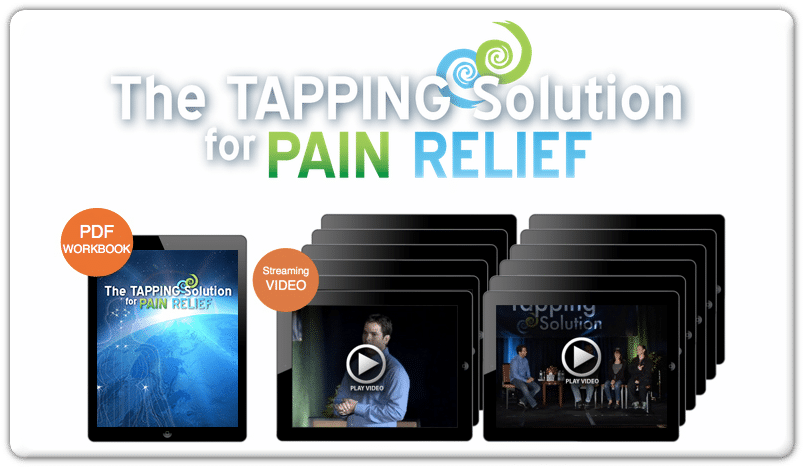Chronic physical pain impacts over 100 million Americans – and millions more around the world. Why are so many suffering? Let’s look at some recent research demonstrating the link between stress/emotions and chronic pain.
Recent Chronic Pain Research
A Dutch research study took 121 women, 62 of whom were diagnosed with fibromyalgia to understand pain treatment. An electrical stimulus sent pain into the two groups, first while recalling an emotionally neutral event, and then while recalling an event that made them feel sad and/or angry. All of the women felt more pain when recalling an event that made them feel sad and/or angry.
In a Stanford University research study, 15 participants were examined via fMRI during the first 9 months of new romantic relationships. All study participants completed 3 tasks while being subjected to moderate to intense thermal pain: (1) viewing a photo of their romantic partner; (2) viewing a picture of an equally attractive familiar acquaintance; (3) doing a word-association distraction task that had previously been shown to reduce pain.
Both the 1st and 3rd tasks reduced pain. But only during the 1st (looking at a photo of their partner) did several reward-processing areas of the brain become active, reducing pain in the body.
In a George Washington University research study, lumbar CT scans of 52 patients who reported NO lower back pain were reviewed. The neuroradiologists who looked at the scans had no knowledge of the patients’ clinical histories. Of the entire group, 35.4% demonstrated disc abnormalities, stenosis, and other aging changes. These findings suggest that these physical abnormalities, which are often used to diagnose chronic pain, cannot be conclusively linked to chronic pain.
The Science of Chronic Pain
So what does all this research mean? Temporary pain, or “acute pain”, resulting from an accident, injury, surgery, etc., is a normal, healthy part of the body’s healing process. But why then, for millions of people around the world, does this pain become chronic?
Pain is defined as chronic when it lasts for a period of three months or more. When you feel pain, your body initiates the stress response. Chronic stress also contributes to chronic pain – by making you more prone to accident, injury, weight gain, insomnia, and more.
Chronic stress and chronic pain ARE related and proven in a number of scientific experiments and clinical trials.
Stress Contributes to Chronic Pain
(and negatively impacts your life, relationships, waistline, and more) in a 13-step process:
1. You think about a topic that often stresses you out, such as your pain, work, money, relationships, family, or something else.
2. Your amygdala (in your midbrain) senses danger.
3. Your amygdala helps to initiate your body’s fight-or-flight response to stress.
4. In fight-or-flight mode, your body releases adrenaline and the stress hormone cortisol and diverts blood away from your digestive tract, leaving you less able to digest food and absorb nutrients and more likely to gain weight.
5. In this physiological “crisis mode”, your muscles are oxygen deprived, which makes you more vulnerable to pain—from chronic illness, injuries, arthritis, fibromyalgia, migraines, stomach upset, and more.
6. In this state of heightened physiological alert, your brain’s creative center is deemed nonessential and shuts down. Down goes your problem solving, your creative skills, your intuition, your ability to connect with your body.
7. You feel increasingly irritable, isolated, and impatient. Your relationships suffer. Your pain won’t go away.
8. Stress affects your sleep. Your metabolism slows. Your body takes longer to heal.
9. Your body secretes even more cortisol, continuing the cycle of oxygen deprivation that contributes to your pain. It also wreaks more havoc on your digestion (and waistline), increases your blood pressure, and lowers your immune response.
10. After releasing too much cortisol for too long, your body goes into adrenal fatigue. You feel depleted, exhausted, and depressed. Your pain is now chronic.
11. You no longer have the energy to adhere to your exercise routine, your healthy eating, meditation, or yoga. Chronic pain seems to be running your life.
12. Your energy is low, and you have a hard time focusing. Productivity declines further and your relationships suffer. You’re still in pain.
13. You feel stressed out. You feel depressed. Your muscles are chronically tense and oxygen-deprived, making your chronic pain even more intense and more frequent. You need relief from your pain and your stress now!
Achieving Pain Relief
So what are the options available to you for relieving chronic pain?
Well, you could go the traditional route, visiting doctor after doctor, trying to figure out what exactly the problem is. You may get a diagnosis (or several), you’ll most likely be prescribed pills or painkillers (many with harmful side effects), and may even be presented with an invasive surgery as the only means of eliminating the pain (which may or may not work).
Or… you can try Tapping! This safe, inexpensive, and effective technique has incredible results in relieving chronic pain. It targets those emotions and stressors connected to the pain.


Over 2 Million Tapping Meditations Played in Our App!
Get Instant Access to our "Releasing Anxiety" and "Sleep Support: Quiet The Racing Mind" Tapping meditations.Check out the free resources above, or continue reading to find out more about our Tapping for Pain Relief program.
We want everyone to have the opportunity to experience lasting pain relief, so we created a pain relief home study course for you called:
The Tapping Solution for Pain Relief
In The Tapping Solution for Pain Relief, I lead you through a process that will allow you to feel what it’s like to be pain-free again.
We even include the recordings for the FULL Pain Relief World Summit.
This is such a powerful process, and the results are amazing. I still get so excited seeing people come out of it pain-free. 🙂
If you or someone you know is struggling with chronic pain, I hope you’ll join us (or forward this program!) for this opportunity to experience lasting pain relief.
Until next time…
Keep Tapping!
Nick Ortner











Connect With Us on Social Media